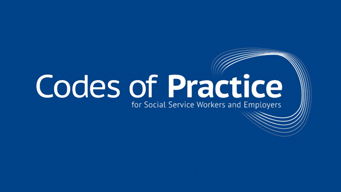

Social workers who are returning to practice after more than two years must evidence learning through supervised practice, formal and informal learning when applying to register, or achieve this learning within six months of registering.
The hours of learning you need to do depends on the length of time you’ve been out of practice and last registered as a social worker.
There is no requirement for anyone who has been out of practice and not registered as a social worker for less than two years. You will be required to complete the normal continuous professional learning (CPL) for social workers.
You can find information about CPL here.
Social workers who have not been registered for more than two years need to evidence the requirements through supervised practice, informal and formal learning. We accept a combination of these to evidence learning, however you must complete the minimum supervised practice hours and formal learning required, to allow you enough learning opportunities to meet the four themes.
Length of time since last registered as a social worker |
Required hours of learning |
How learning must be evidenced |
|---|---|---|
|
Less than two years |
No requirement |
You don’t need to meet return to practice requirements. You are required to complete the continuous professional learning (CPL) requirements for your registration. If you have not met the newly qualified social worker (NQSW) requirements you will need to complete these. |
|
Two to five years |
180 hours |
Combination of supervised practice, formal and informal learning |
| Over five years | 360 hours |
Combination of supervised practice, formal and informal learning |
To meet the return to practice requirements at the point of registration, all required learning must have taken place in the 12 months before applying. You must submit your evidence of this when applying to register. You can download the return to practice for social workers form here.
If you don’t meet all the return to practice requirements when you apply to register, we will register you with a condition to achieve and submit evidence of all requirements within six months. To meet your condition, you can use learning and evidence from six months before applying to register to the end of the six-month condition period.
All learning presented as evidence of meeting the required hours must cover these four themes:
Return to practice is a recognised pathway in CPL for social workers. The eight CPL core learning elements for all social workers regardless of career stage or role are:
The core learning elements build on the Standards in Social Work Education (SiSWE) and are underpinned by the same ethical principles.
The table below shows the social work CPL core learning elements under each of the return to practice themes. You can find further descriptors of the core learning elements for social work in our CPL guidance.
Return to practice requirement themes |
Social work core learning elements |
|---|---|
|
Current legislation and policy |
Ethics, values and right-based practice |
|
Social work skills, knowledge, understanding and practice |
Ethics, values, and right-based practice |
|
The key codes and standards for practice |
Ethics, values and right-based practice |
|
Adult and child protection |
Ethics, values and right-based practice |
This theme requires you to evidence learning that includes, but is not limited to, ensuring that your knowledge is up to date about how statutory social work is governed/led by relevant policy, legislation and national guidance. For example, learning around social work statutory duties in mental health, adults with incapacity, child protection and adult support and protection legislation.
Evidence for this theme must include knowledge of the policy landscape and key current policies, and what they mean for social work practice. You are required to evidence how you have/will put your completed learning into practice.
As a returning social worker, you will bring transferable skills, knowledge and experiences from previous periods of registration, study and employment. This theme requires you to evidence what learning you have undertaken to build on your previous knowledge and skills to bring your practice up to date to ensure that you are confident and competent in your ability to carry out the key functions of the social work role, including professional decision making, managing risk and trauma informed practice.
Resources you might use include My Learning Open Badges and recently published research. Supervised practice will allow you to critically reflect on this theme and reflect on your learning. You may wish to explore specific learning for specialist areas of practice in your learning. You may also want to use this theme to critically reflect on any particular issues or reasons you left practice and if there is any impact as you return to social work.
You will need to ensure that you are confident and competent in your knowledge about the relevant codes of practice and standards that you will be working to. This will include, but is not limited to, the SSSC Codes of Practice, SiSWE and the Health and Social Care Standards. Specialist learning and role specific practice standards that underpin different areas of social work practice may be relevant for this theme, for example, the social work services in the criminal justice system: national outcomes and standards.
Every registered social worker must engage in learning that helps their understanding of how their role contributes to the wellbeing and protection of children and adults from harm regardless of setting or role.
You must ensure that your learning brings you up to date with current adult and child protection legislation and guidance and know your responsibilities as a social worker. You must evidence how you have refreshed your own learning in relation to national statutory guidance and any legislative changes since you were last registered. Supervised practice will provide you with the opportunity to evidence how you have put that learning into practice and demonstrate your competence and confidence in delivering organisational protecting people policies and procedures.
If you hold a specialist award that allows you to carry out reserved statutory duties, such as a mental health officer (MHO) award and you intend to carry out these functions on your return to practice, we expect you to meet the practice requirements for this and ensure you have completed any learning necessary to keep your knowledge and skills up to date to allow you to carry out these functions.
You will have to evidence the return to practice requirements through supervised practice, formal and informal learning.
This must take the form of practice at a social worker level/function and is supervised by someone who is a registered social worker. This can take the form of any relevant practice social workers in Scotland do within in any relevant setting. We would accept evidence from a placement or paid employment in a role related to social work, such as social work assistant, if you have undertaken the period of practice under the supervision of a registered social worker.
It could include:
This can take the form of learning through an accredited course, such as one completed through a higher education institute (HEI). It can also take the form of learning completed through a work-based environment that is certificated or evidenced through an employer or learning provider. It must be a course that is relevant to social work practice and the themes identified in the requirements. If you were registered subject to a condition to meet your return to practice requirements and you are still undertaking this formal learning at the end of the six-month condition period, you can submit evidence from the learning provider or employer of hours/credits and learning completed towards meeting this requirement.
This can take the form of any learning that is directly related to social work practice that meets the return to practice themes. You should record a reflective account of learning, alongside the time taken for you to complete it. Informal learning can include, but is not limited to:
If you have completed all the requirements before applying for registration you must use the return to practice for social workers form to evidence your learning achieved in the last 12 months. You should upload your completed form when applying to register on your MySSSC account.
If you are registered with a condition to complete the requirements, use the form to evidence your learning and submit it to us in your MySSSC account within six months. You can include learning and evidence completed up to six months before applying to register.
Supervised practice involves working under the supervision of a registered social worker. Carrying out this practice will support you to reflect on your learning. We don’t specify the activities you must do as part of your supervised practice, however they must relate to activities that social workers do in Scotland.
The supervisor who oversees your supervised practice must be registered as a social worker and must not be subject to a fitness to practise investigation, sanctions or interim orders. It does not need to be the same supervisor for every activity carried out, as long as the person who has observed you is a social worker.
You will need to keep a record of all the supervised practice you carry out to evidence you have met the requirements.
You will need to provide the supervisor’s:
Your evidence must include:
Your supervisor must verify that you carried out the work and that you’ve met all four themes across all the hours required for your return to practice. You should submit this verification and information to us in the return to practice for social workers form as evidence that you have met the requirements within six months of registering or at the point of applying to register.
Provide evidence of course/learning completed. It must meet the minimum hours required. This can include evidence of academic modules, certificates, degrees, diplomas, courses that have been run by your own organisation, another organisation or online learning that is certified. This evidence can be in the form of certification of the learning completed but you must include supporting information about length and content of courses to ensure that the minimum hours for this part of the return to practice requirements are met.
You should keep a record of any informal learning you have undertaken. For each learning record you must include a description of the learning, the hours completed, a reflective account of how this learning has supported your return to practice and the theme it relates to.
Registration is compulsory for many social service roles so visit our ‘Help with Register parts, fees and qualifications tool' for more information.
Access the tool hereCheck the registration status of a social worker or social care worker employed in Scotland
Search the Register
Continuous professional learning (CPL) is the learning we do for work which helps us develop our knowledge, skills and professional behaviour so we can deliver our best practice.

The Codes of Practice set out the standards of practice and behaviour expected of social service workers and their employers.

Visit our registration and MySSSC help centre to find the answers to common questions, including qualifications for registration, MySSSC accounts and employer access.